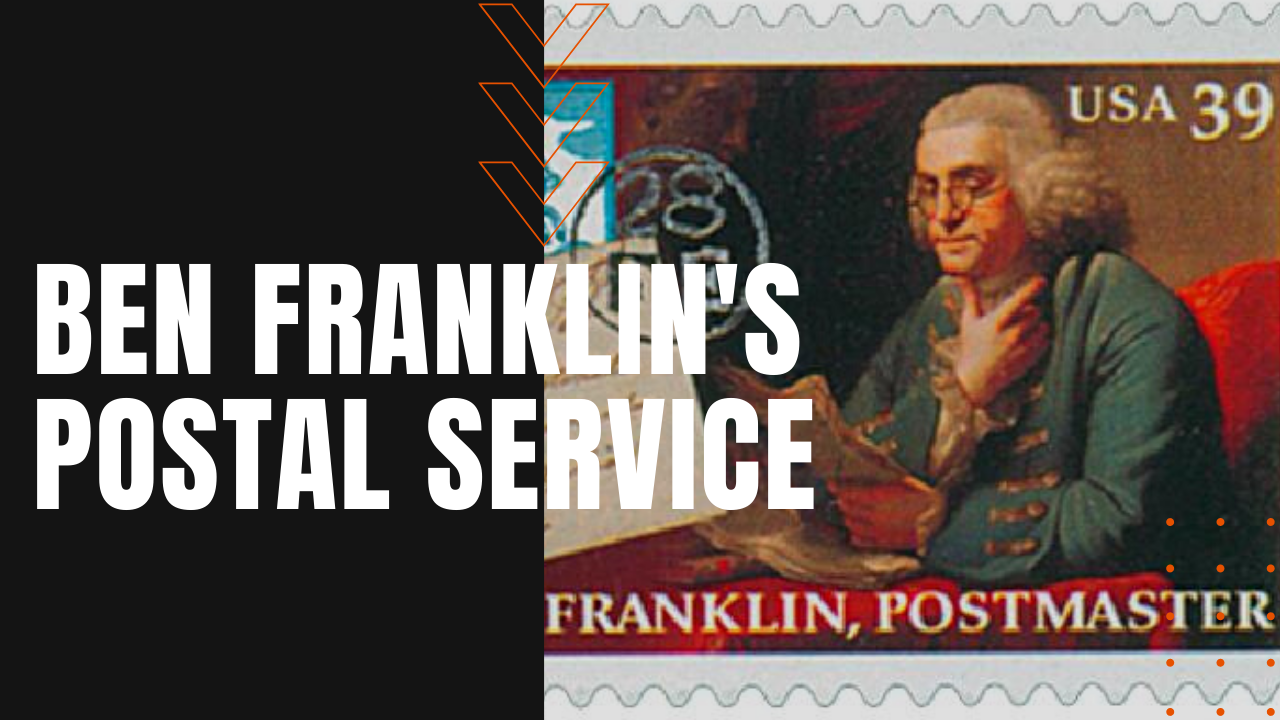Ben Franklin’s Postal Service

By the still tender age of 31, Ben Franklin had already built a prosperous business as a printer, shopkeeper and publisher of The Pennsylvania Gazette, not to mention the author of the wildly successful Poor Richard’s Almanac.
Ben Franklin Appointed Postmaster
In 1737, he was appointed postmaster of Philadelphia, after British authorities removed his predecessor for failing to submit financial reports. Being a local postmaster didn’t come with much pay, but it did allow Franklin to mail his newspaper to readers at no cost, making the Pennsylvania Gazette one of the colonies’ most successful publications.
Comparable to how politicians and celebrities rely on platforms such as Twitter, Franklin used the mail for self-promotion of his many achievements, making the founding father one of the world’s most admired Americans.
Due to his meticulous record-keeping, Franklin was asked by his British overlords to manage Britain’s colonial mail service from 1753 to 1774, allowing Franklin to supercharge a primitive courier system connecting the 13 fragmented colonies into an efficiency-driven organization that sped deliveries between Philadelphia and New York City to a mere 24 hours.
Ben Franklin’s Revolutionary Postal Service
Franklin’s travels along the post roads of Colonial America would inspire his revolutionary vision for how a new nation could thrive independently of Britain, but not even Franklin could imagine the pivotal role his postal service would bring to the American Revolution.
By the early 1770s, Franklin’s fellow patriots had organized underground communication networks, the Committees of Correspondence, followed by the Constitutional Post, that allowed the founders to talk treason behind the backs of their British rulers.
In 1775, three months after the Battles of Lexington and Concord and well before the Declaration of Independence was even signed, the Continental Congress turned the Constitutional Post into the Post Office of the United States, whose operations became the first, and for many average Americans, the most significant function of the newly-formed government.
James Madison and other founding fathers understood how the post could support a fledgling democracy, delivering inexpensive newspapers and political pamphlets that shed light on British tax bills designed to pay back Britain after her defense of the colonies during the French and Indian Wars.
Put simply, Franklin’s efficient management of the world’s first social media platform, allowed like-minded Americans to join forces in their common desire for independence.
